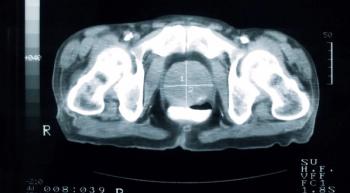
Media coverage of COVID-19, the disease caused by the new coronavirus, has ramped up significantly in recent weeks as new cases are being reported around the country and the world.

Media coverage of COVID-19, the disease caused by the new coronavirus, has ramped up significantly in recent weeks as new cases are being reported around the country and the world.

From implementing telemedical approaches to resequencing treatments, cancer centers across the nation have nimbly adapted to face the clinical challenges posed by the novel coronavirus 2019 disease (COVID-19). These adjustments in standard operating procedures mitigate the risk for virus spread among clinicians and patients alike.

CYNK-001 will be evaluated in an upcoming phase I/II clinical trial including up to 86 patients with COVID-19.

The American Association for Cancer Research wrote to Congress urging them to take action against the pandemic, and outlined how the oncology community can help.

Here are the top 5 Oncology Nursing News® stories for March 2020.

The use of PARP inhibitors against DNA damage repair (DDR) alterations in prostate cancer is the first display of the potential for widespread precision medicine in the field, according to William K. Oh, MD, in a presentation during the 13th Annual Interdisciplinary Prostate Cancer Congress® and Other Genitourinary Malignancies.

Clinicians must weigh out the pros and cons when treating patients with cancer during the coronavirus disease 2019 (COVID-19) pandemic.

The FDA is loosening the rules for the manufactures of certain air purifiers disinfectant devices so that more can be made available.

The FDA approved durvalumab (Imfinzi) plus standard-of-care (SoC) chemotherapies etoposide with either carboplatin or cisplatin (platinum-etoposide) for the treatment of adults with extensive-stage small cell lung cancer (ES-SCLC).

To hinder the rapid spread of COVID-19 across the globe, mandatory lockdowns have been put into place to encourage the practice of social distancing, explained Omid Hamid, MD; however, efforts to prevent close contact, and thus exposure to the virus, have also caused disruptions in access to care for patients with cancer.

Retrospective results showed that African-American women with endometrial cancer are less likely to receive evidence-based care compared with white women.

A recent study from Wuhan, China, analyzed characteristics and outcomes of patients with cancer infected with the coronavirus.

In the absence of definitive data regarding the risk of COVID-19 to patients with cancer and information to guide daily treatment decisions in the interim, Petros Grivas, MD, recommended converting the majority of patient visits to telehealth appointments and basing a patient’s need for treatment on their medical comorbidities, performance status, and cancer risk.

Cancer immunotherapy agents may be useful in treating patients with the coronavirus disease 2019, and should be made readily available, according to the Society of Immunotherapy for Cancer.

The FDA recently stated that it is taking steps to mitigate the personal protective equipment and device shortage for healthcare professionals amid the coronavirus (COVID-19) outbreak.

“Your wellbeing and emotional resilience is essential to our patients as we work to help our community through the COVID-19 pandemic,” the organization said.

The FDA has approved the initiation of a double-blind, randomized phase III clinical trial of the oncology supportive care drug tocilizumab (Actemra) for use in combination with standard of care for the treatment of hospitalized adult patients with severe COVID-19 pneumonia, according to Genentech (Roche), the manufacturer of the interleukin-6 receptor antagonist.

The FDA has approved a 420-mg multidose vial of trastuzumab-dttb (SB3; Ontruzant), according to Samsung Bioepis Co., Ltd., the manufacturer of the trastuzumab (Herceptin) biosimilar.

The needs of the oncology population remains a “top priority,” according to the FDA.


The Oncology Nursing Society (ONS) recently published interim guidelines – though they’re admittedly not ideal – on PPE usage in the midst of the epidemic.

The optimal sequencing of therapies for patients with metastatic castration-resistant prostate cancer (mCRPC) has proven to be a significant clinical challenge following the approvals of additional agents, said William K. Oh, MD.

Treatment options for patients with localized bladder cancer, beyond Bacillus Calmette-Guérin (BCG), are evolving as immunotherapies and novel agents are gaining traction in the management of this population, according to John P. Sfakianos, MD.

Breast implant-associated anaplastic large-cell lymphoma (BIA-ALCL) is a relatively newly discovered illness, which leaves many questions for both patients and providers.

“We must protect them” one nurse said about oncology patients in the COVID-19 pandemic.

The FDA has granted 2 Orphan Drug Designations to ALPN-101 for the prevention and treatment of acute graft-versus-host-disease (GVHD), according to Alpine Immune Sciences, Inc., the company developing the first-in-class selective dual T cell costimulation inhibitor.

Certain patients with myelofibrosis may be at higher risk for pulmonary hypertension, according to recent research.

Healthcare providers and citizens alike are navigating uncharted territories when it comes to the novel coronavirus/COVID-19.

The National Comprehensive Cancer Network discussed problems – and potential solutions – for healthcare providers regarding the COVD-19 pandemic.

In the midst of the current opioid epidemic, pain management is taking center stage in many healthcare settings, and oncology is no different. It is crucial that patients have their pain – both acute and chronic – managed, while avoiding the potential of drug misuse. Add in barriers to care and other roadblocks, and things become even trickier.